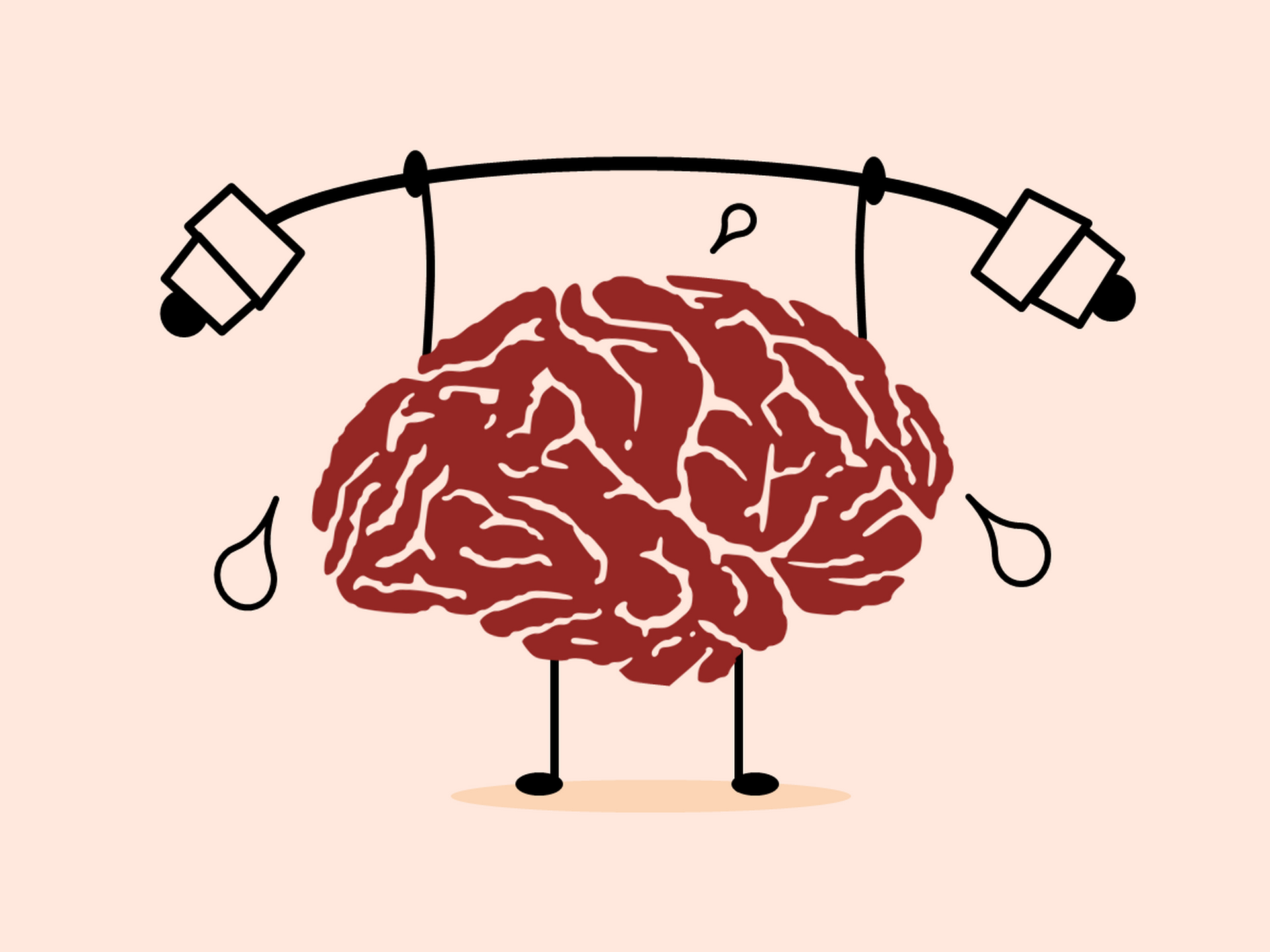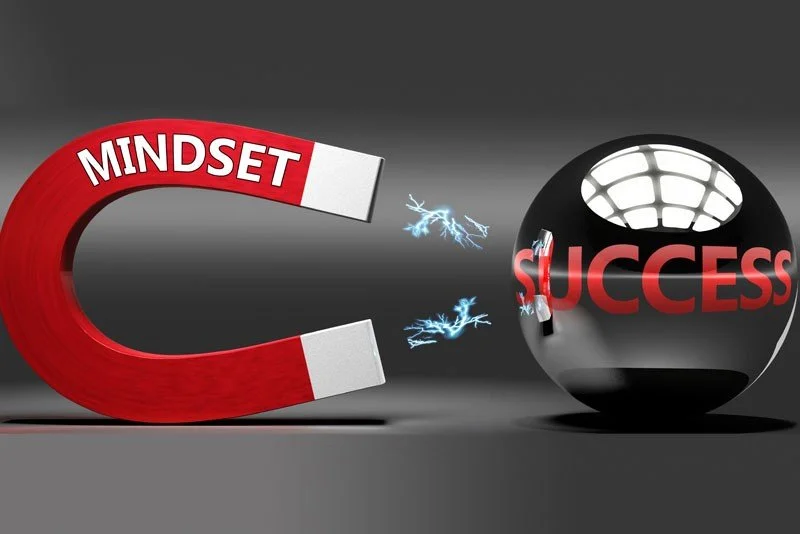Beyond the Physical: Why Mental Fitness is the Unseen Advantage of Elite Performers
6 mins read
By Dr Chantale Lussier, PhD, CMPC
Article continues below image
You—the athlete bent over your sport, the dancer refining one more elevation, the business leader double-checking every decision—what if I told you that your greatest margin of excellence isn’t in your body, your technique, your hours of rehearsal or training? What if the unseen space—your mind—holds the secret advantage?
Because I have lived it: as a former professional dance-artist, as a mental performance consultant working with gold-medal-winning athletes, pro-level teams, first-responders, and high-stakes executives, I’ve seen that the physical is necessary, but never sufficient (Lussier, 2010; Lussier, 2010).
As elite athletes, artists, and business leaders, you spend countless hours honing your craft. You perfect your technique, push your physical limits, and dedicate yourself to practice. But what happens when the pressure is on? When the stakes are at their highest, and a single moment can define your success? When the pressure is on—when the arena flickers, the lights change, the audience hushes, the moment tightens—the difference between “good” and “great” comes down to what is happening above the shoulders. The world’s most successful performers know this: the personal battle is waged in the mind before it’s won on the field, the stage, the board-room.
Your mindset becomes the differentiator.
The world’s most successful performers know that the game is won in the mind before it’s won on the field, the stage, or the trading floor. For decades, mental performance has been treated as a secret weapon—a less-discussed part of the training routine. However, as Olympic gymnast Simone Biles and professional baseball pitcher Chris Martin have bravely demonstrated, prioritizing mental health is not a weakness; it is a critical component of sustained excellence (The Conversation, 2024). Proactively building an arsenal of mental skills is game changing for sustainable excellence. It allows us to turn our minds into one of our greatest assets in all facets of our lives giving us a significant edge on the competition, and a way of experiencing the journey that becomes much more aligned with our most authentic self.
It's not about talent, it's about the will to prepare
The reality is that at the elite level, physical talent is often a given. What separates the good from the great is the unwavering commitment to the mental game. This isn't just a motivational phrase; research supports it. As legendary basketball coach John Wooden famously said, "It's what you learn after you think you know it all that really counts" (Mole, 2025, para. 3). This relentless pursuit of self-improvement is fueled by mental fortitude. But while sports, the performing arts, and many other high performance environments can be deeply transformative spaces for personal growth and development, building depth and breadth of mental skills isn’t inherent, it has to be taught, coached, and trained with deliberate intention and by design.
Consider the words of Michael Jordan, whose tireless work ethic is legendary:
"I've missed more than 9,000 shots in my career. I've lost almost 300 games. 26 times, I've been trusted to take the game-winning shot and missed. I’ve failed over and over and over again in my life. And that is why I succeed".
Jordan’s mindset was not defined by his physical ability alone, but by his mental resilience and his refusal to be broken by failure. Champions across industries have learned a skillset that makes them able to tap into their highest potential, again and again. It’s a skillset that allows them to use their minds optimally.
Article continues below image
The unseen battle against the inner critic
Even for the most decorated athletes, self-doubt can be a powerful adversary. Elite athletes experience unique stressors associated with high-performance sport, including competition pressure, exhaustive training, and career transitions (Wadsworth et al., 2025). As tennis champion Serena Williams admitted in her Masterclass, she still experiences "a lot of self-doubt…a tremendous amount of nerves" before a match (as cited in Forbes, 2019, para. 1). Yet, her ability to project confidence and determination on the court, even when feeling vulnerable, is what set her apart.
Williams’s success didn't come from ignoring her nerves but from building her capacity to perform despite them. She has built a career on channeling her emotions and proving people wrong. Research has shown that emotionally intelligent athletes, who can understand and manage their own emotions, tend to have higher self-efficacy, a key predictor of performance (Laborde et al., 2016). This is the essence of mental fitness—not a lack of emotion, but the skill to navigate the high-stakes moments with calm and composure.
Imagine now for a moment, being able to have access to your full knowledge, skills, and abilities, to have clarity when it counts most, to be able to make great decisions swiftly and under pressure, and to do so with more consistency and composure? This is what becomes possible when we deliberately DO the inner work in the mental gym.
Article continues below image
Training your mind is the ultimate competitive advantage
Much like physical training, mental skills can be developed with consistent practice. The evidence is clear: mental skills training enhances both performance and well-being. A recent systematic review found that structured exercise programs, which often incorporate elements of mental skills training like mindfulness, can enhance mental well-being by improving mood and stress resilience (Lonsdale et al., 2024; Wadsworth et al., 2025). Athletes, artists, and leaders can train their minds to build resilience and focus. As LeBron James stated, mental fitness means;
"Presence... awareness... calm and composure... and resilience" (as cited in Heja, 2020, para. 5).
Training your mind to focus and stay present in high-pressure situations is paramount. It is the difference between choking under pressure and performing at your peak. Researchers have found that interventions focused on mental skills, such as visualization and imagery, can significantly improve athletes' confidence and competitive performance (Calvo & Carretero-Dios, 2019). This is the science behind the art of performance.
As a mental performance consultant, I believe that your mind is your most powerful asset. True champions are not just physically dominant; they are mentally masterful. If you want to expand your reach, you must first expand your mindset. In my work as founder of Elysian Insight, the phrase I often say is “Train your mind. Play with heart.” It means that the unseen work you do today on the inner game, will make an impactful difference on your readiness to play tomorrow.
My Invitation to You
In my decades of applied work—from gold-medal athletes to pro teams to performing artists to high performers in business and across many domains —I have witnessed the transformative power of mental skills training. My belief is simple: You are more than what you do — you are how you perform under pressure.
If you are ready to deepen your mental fitness, to build the unseen advantage that will allow you to step more fully into your excellence—then I invite you to take one small, meaningful step today.
Book a free 15-minute discovery call with me here. Let’s explore how to tailor mental-skills training to your world—athlete, artist, leader—and craft a plan to sustain your excellence without sacrificing your wholeness.
Want more content like this? Sign up to my newsletter here
References
Advantage Performance Group. (n.d.). The power of failure. Retrieved October 9, 2025, from https://www.advantageperformance.com/talent_development/the-power-of-failure/
Calvo, F., & Carretero-Dios, H. (2019). Psychological factors for competitive performance: The moderating role of imagery use. Frontiers in Psychology, 10, 2627. https://www.frontiersin.org/journals/psychology/articles/10.3389/fpsyg.2019.02627/full
The Conversation. (2024, July 9). By revealing their mental health struggles, pro athletes are scoring with fans. Retrieved October 9, 2025, from https://theconversation.com/by-revealing-their-mental-health-struggles-pro-athletes-are-scoring-with-fans-233203
Forbes. (2019, August 30). Serena Williams gives a 3-step tutorial on mental toughness - Her greatest strength. Retrieved October 9, 2025, from https://www.forbes.com/sites/carminegallo/2019/08/30/serena-williams-gives-a-3-step-tutorial-on-mental-toughness-her-greatest-strength/
Heja. (2020, October 22). What LeBron James can teach young athletes about mindset. Retrieved October 9, 2025, from https://inside.heja.io/what-lebron-james-can-teach-young-athletes-about-mindset-267be9835887
Laborde, S., Dosseville, F., & Scelles, N. (2016). Emotional intelligence in athletes: A systematic review. European Journal of Sport Science, 16(2), 173–185.
Lonsdale, C., Tapsell, L., Piek, J. P., & O’Leary, F. M. (2024). Mental skills training and exercise to improve psychological health and wellbeing in adults: A systematic review and meta-analysis. International Journal of Behavioral Nutrition and Physical Activity, 21(1), 104. https://ijbnpa.biomedcentral.com/articles/10.1186/s12966-024-01676-6
Mole, G. (2025, April 11). The best sport psychology quotes. Condor Performance. https://condorperformance.com/best-sport-psychology-quotes/
Wadsworth, N., McEwan, K., St Clair Gibson, A., & St Clair Gibson, S. (2025). The high-performance sport environment: A conceptual model for supporting athlete mental health and wellbeing. Frontiers in Sports and Active Living, 7, 1374522. https://www.frontiersin.org/articles/10.3389/fspor.2025.1374522/full




